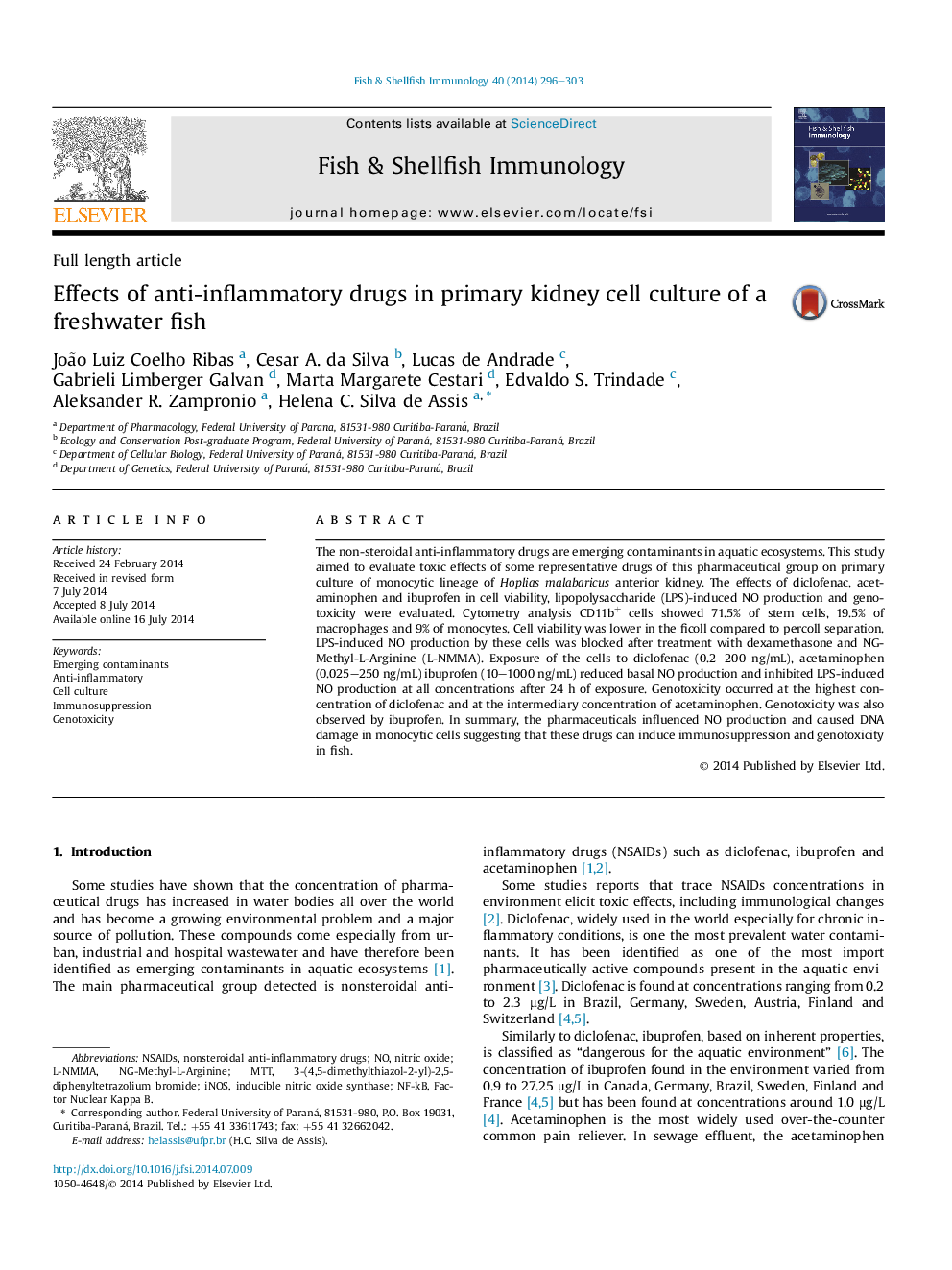| Article ID | Journal | Published Year | Pages | File Type |
|---|---|---|---|---|
| 10971946 | Fish & Shellfish Immunology | 2014 | 8 Pages |
Abstract
The non-steroidal anti-inflammatory drugs are emerging contaminants in aquatic ecosystems. This study aimed to evaluate toxic effects of some representative drugs of this pharmaceutical group on primary culture of monocytic lineage of Hoplias malabaricus anterior kidney. The effects of diclofenac, acetaminophen and ibuprofen in cell viability, lipopolysaccharide (LPS)-induced NO production and genotoxicity were evaluated. Cytometry analysis CD11b+ cells showed 71.5% of stem cells, 19.5% of macrophages and 9% of monocytes. Cell viability was lower in the ficoll compared to percoll separation. LPS-induced NO production by these cells was blocked after treatment with dexamethasone and NG-Methyl-L-Arginine (L-NMMA). Exposure of the cells to diclofenac (0.2-200Â ng/mL), acetaminophen (0.025-250Â ng/mL) ibuprofen (10-1000Â ng/mL) reduced basal NO production and inhibited LPS-induced NO production at all concentrations after 24Â h of exposure. Genotoxicity occurred at the highest concentration of diclofenac and at the intermediary concentration of acetaminophen. Genotoxicity was also observed by ibuprofen. In summary, the pharmaceuticals influenced NO production and caused DNA damage in monocytic cells suggesting that these drugs can induce immunosuppression and genotoxicity in fish.
Keywords
Related Topics
Life Sciences
Agricultural and Biological Sciences
Aquatic Science
Authors
João Luiz Coelho Ribas, Cesar A. da Silva, Lucas de Andrade, Gabrieli Limberger Galvan, Marta Margarete Cestari, Edvaldo S. Trindade, Aleksander R. Zampronio, Helena C. Silva de Assis,
